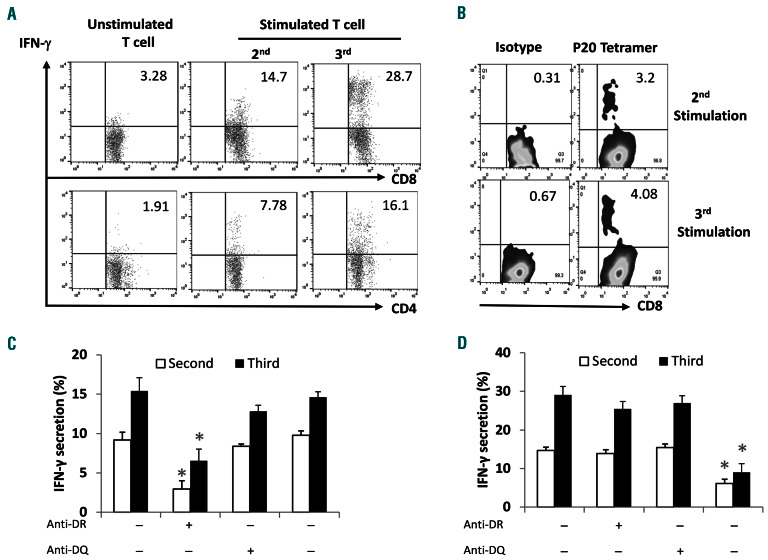Figure 5.
Dickkopf-1 (DKK1)3-76-long peptide (LP) induces DKK1-specific human T cells in vitro. Fresh peripheral blood mononuclear cells (PBMC) derived from healthy donors (HLA-A0201+ or HLA-DR*4+) were stimulated with DKK13-76-LP plus IL-2 and IL-7 weekly in vitro. (A) Frequency of DKK1-specific CD4+ and CD8+ IFN-g-secreting cells detected by intracellular staining assay. (B) Percentages of HLA-A*0201-DKK1-P20 tetramer+CD8+ T cells in culture after second or third in vitro stimulation with DKK13-76-LP. (C) MHC class II-restriction of DKK13-76-LP-specific CD4+ T-cell response. PBMC stimulated with DKK13-76-LP for 1 week were re-stimulated with DKK13-76-LP in the presence of different monoclonal antibodies (mAb) specific for HLA-DR, -DQ or HLA-ABC. The results showed that HLA-DR antibody significantly reduced the percentages of IFN-g-secreting CD4+ T cells. (D) HLA-A*0201-restriction of DKK13-76-LP-specific CD8+ T-cell response. PBMC stimulated with DKK13-76-LP for 1 week were re-stimulated with DKK13-76-LP in the presence of different mAb specific for HLA-DR, -DQ or HLA-A2. The results showed that HLA-A*0201 antibody significantly reduced the percentages of IFN-g-secreting CD8+ T cells. Representative results of three experiments are shown. *P<0.05; **P<0.01.

